World Oceans Day, June 8th, is a way to celebrate our world's shared oceans and our personal connection to the sea, as well as raise awareness about the crucial role the ocean plays in our lives and the important ways people can help protect it. Resources are organized by Grade Level.
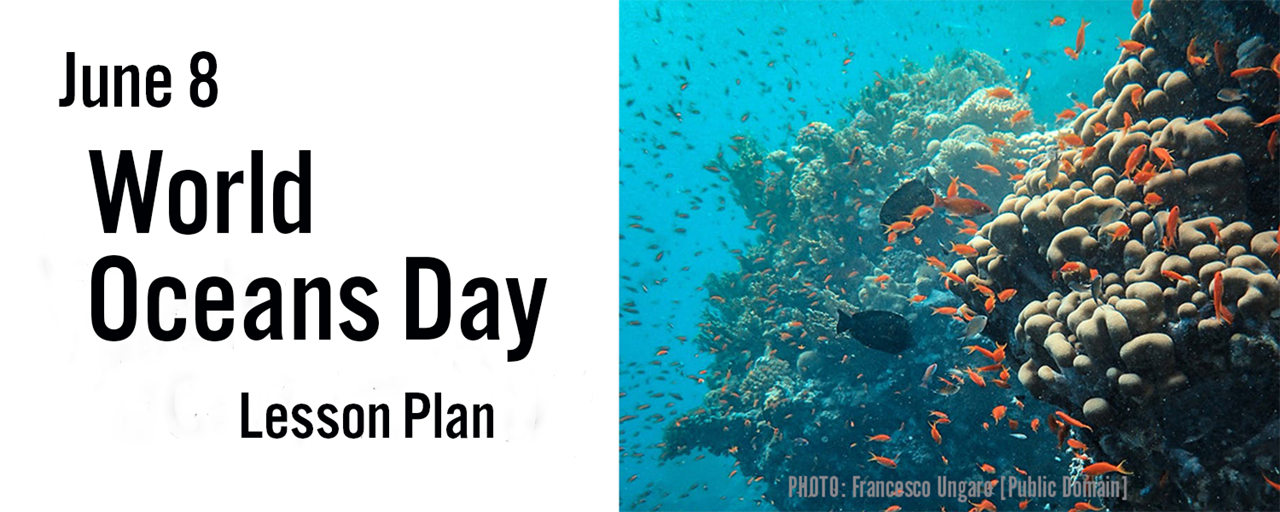
Introduce Students to the Impact of Plastic on Our Oceans: A short film for each grade level exploring the impact of plastic on oceans.
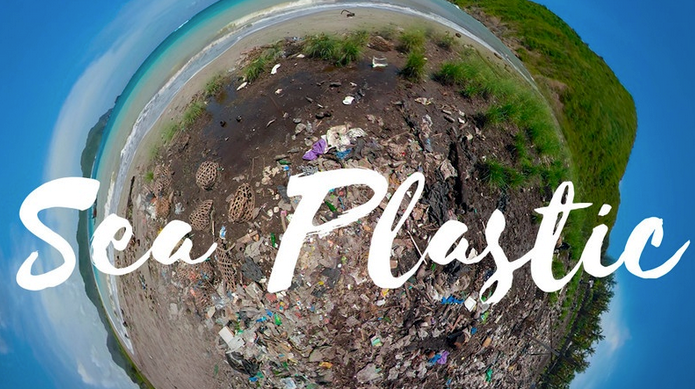
High School: The Jetlagged and Plastic Pollution Coalition wants to show our addiction to plastics and raise awareness about the impact plastic waste has on the environment. (5:20 minutes run time)
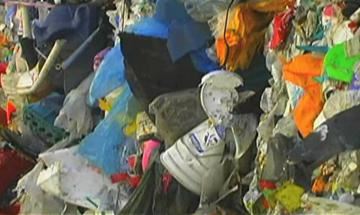
Middle School: Plastic pollution is threatening the ocean's ecosystems, but we can work together to prevent further damage! (4:46 minutes run time)
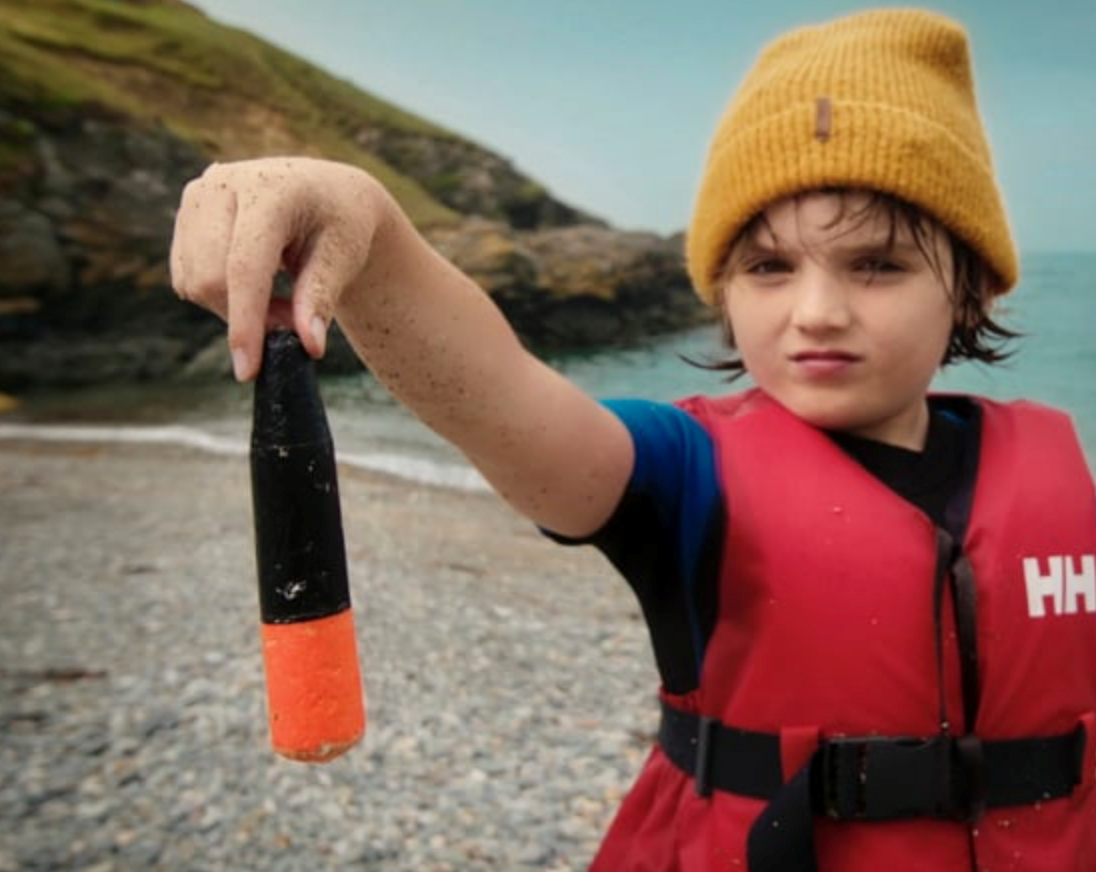
Upper Elementary Students: Our world has a serious ocean plastics problem. There are now a higher number of plastics in the ocean than the number of fish. (4:39 minutes run time)
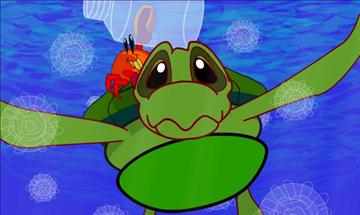
Younger Elementary Students: Pollution is not a species-specific problem. (4:00 minutes run time)
Discussion Questions: Adapt based on the age of students
1. Why is single-use plastic bad for the environment and oceans?
2. What changes need to be made to protect our food chain and the environment?
3. Where do you find single-use plastic? Look around your own home. What can you and your family do to make a difference?
Additional Films About the Impact Plastic has on the World's Oceans Recommended for Upper Elementary, Middle and High School Students
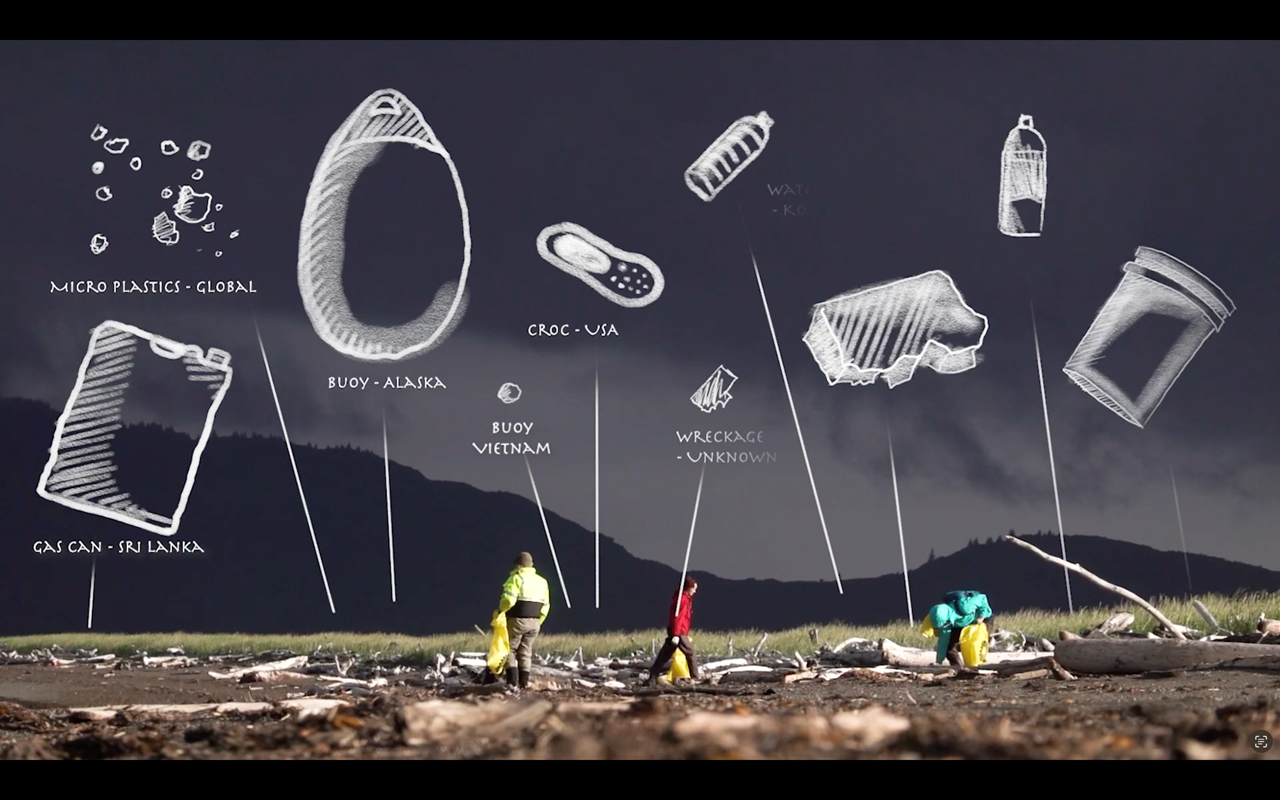
Inspired by a picture book, Max Romey heads to a remote beach on Alaska's coastline in search of marine debris. (Runtime 4:59 minutes)
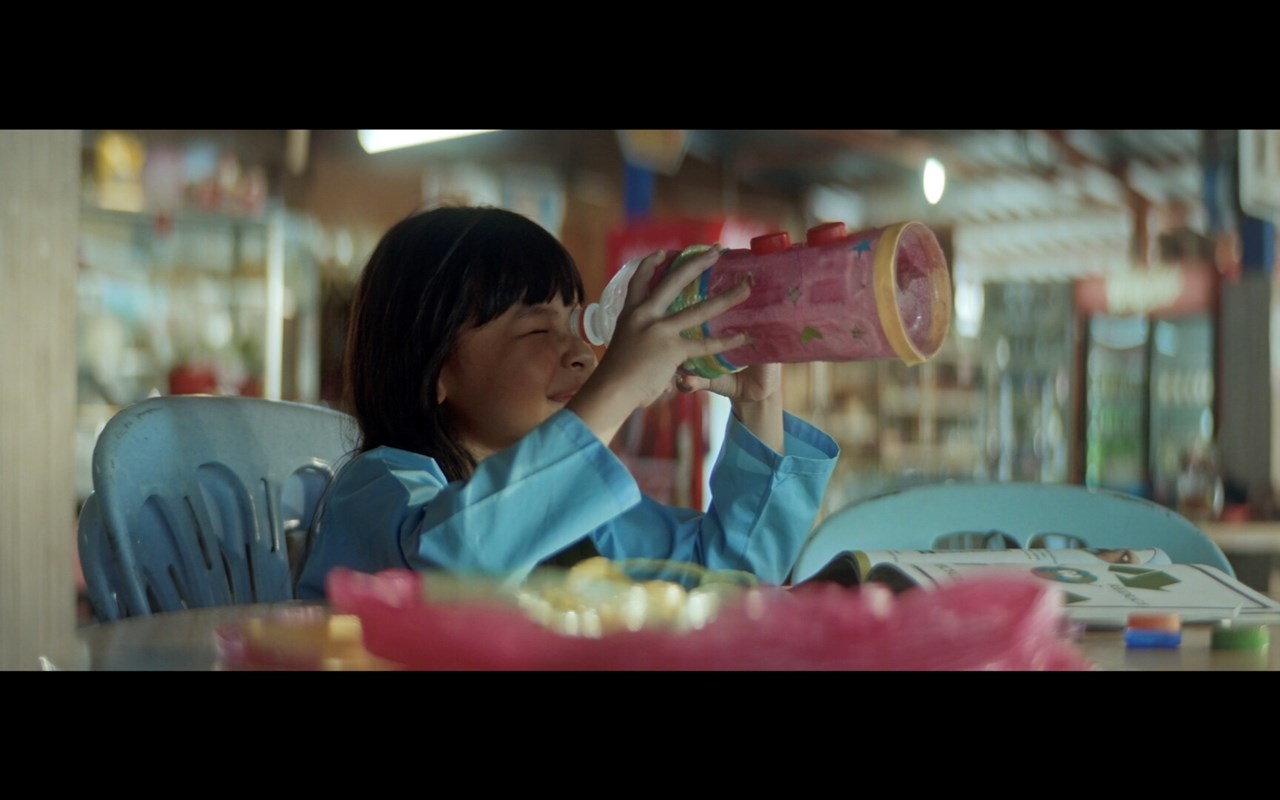
(PLASTIK) follows a child who looks through a telescope she made out of a plastic bottle and experiences glimpses of our plastic-polluted future. (2:30 minutes runtime)
Featured Resources for Younger Elementary Students. These films have a run time of about 19 minutes, perfect for one class period
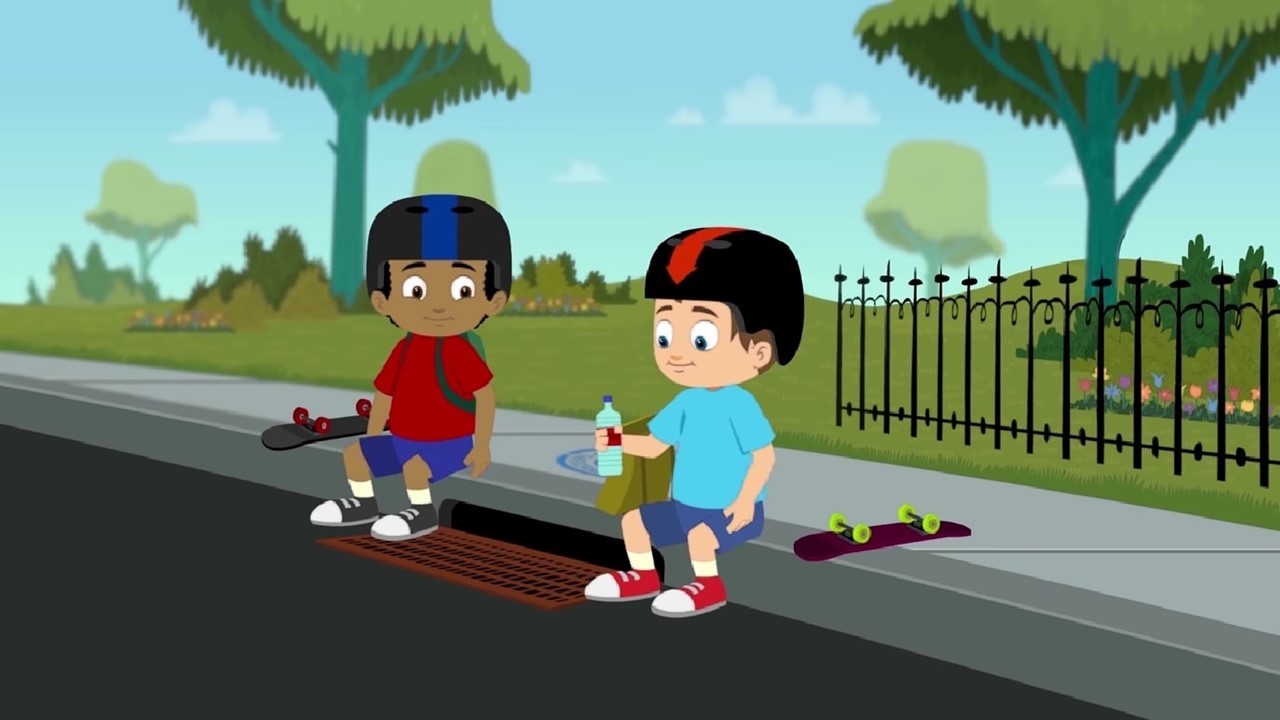
A story about two friends and their discovery of the relationship between our cities' storm drains and the world's oceans, lakes and rivers. (10:00 min. run time)

Our world has a serious ocean plastics problem. There are now a higher number of plastics in the ocean than the number of fish. (4:39 min run time)
1. Why is plastic bad for the ocean and other waterways?
2. What can you do to protect the ocean from plastic? What can your school do?
Films for Upper Elementary Students: Films have a total run time of about 20 minutes, use with questions for one class period lesson.

Plastic pollution is threatening the ocean's ecosystems, but we can work together to prevent further damage! (4:46 minutes run time)

Our world has a serious ocean plastics problem. There are now a higher number of plastics in the ocean than the number of fish. (4:39 minutes run time)
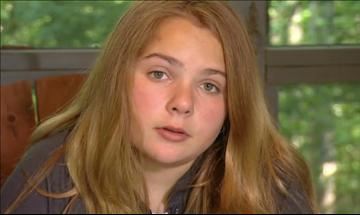
Young Olivia loves birds and creates over 500 paintings of her feathered friends to raise funds for Audubon's bird rescue. (6:44 minutes run time)
1. Why is plastic bad for the health of our oceans? How has this problem developed over time? What can be done to improve the situation?
2. What else is bad for the ocean and marine life?
3. Mabon and his mother clean the beaches where they live. Is there an area near where you live that has trash or is overgrown? Is there anything you or your class can do?
4. What inspired Olivia to raise money for Audubon's bird rescue?
Upper Elementary Students: Read the following story to learn about oceanographer Sylvia Earle.
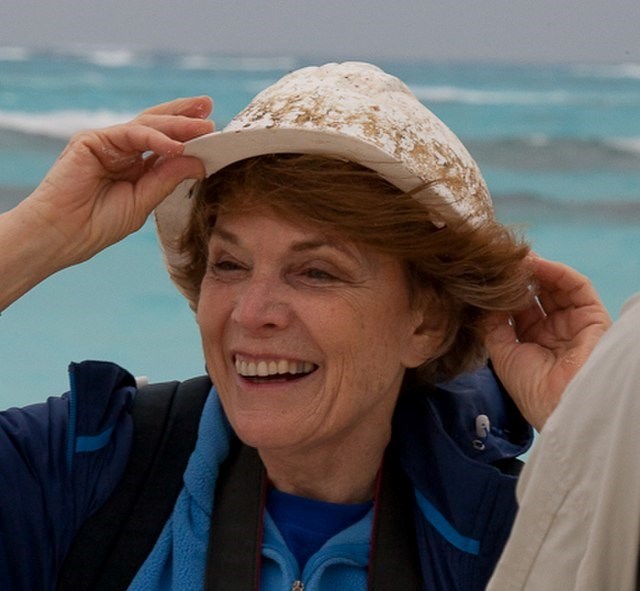
Featured Resources for Middle and High School Students
MY HERO recommends reading the essay and viewing the film below to learn more about marine biologist Sylvia Earle, founder of the Sustainable Seas Project, and consider the discussion questions.
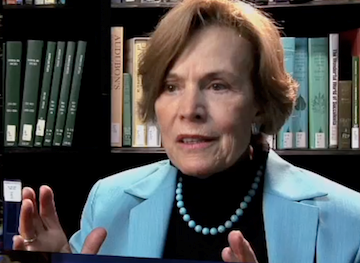
Experience the Ocean through the mask of Dr. Sylvia Earle, marine biologist, explorer, author, and lecturer. (running time 7:17 minutes)
1. How does Sylvia Earle explain the ocean as a living system?
2. What does Sylvia Earle mean by the statement that the greatest threat to our oceans is "ignorance, lack of understanding and our failure to relate our destiny to that of the sea"?
3. Identify bodies of water in your community/part of the world. Who is working towards keeping these bodies of water clean and protected? Share their story with MY HERO.
MY HERO recommends viewing Laguna Beach Eco Heroes: Nancy Caruso, also known as the Kelp Lady, and analyze the Henry the Harbor Seal photograph. Discuss the role of kelp in a healthy ocean ecosystem and how a healthy ocean benefits us all. Do you know any environmental heroes working towards healthy ecosystems in your community? Share their story with MY HERO.
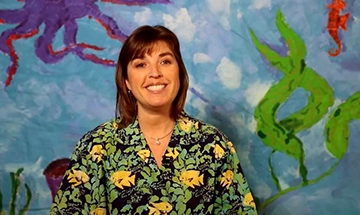
Nancy Caruso aka "The Kelp Lady" has worked hard to restore the kelp off of the shores of Orange County. (running time 3:22 minutes)
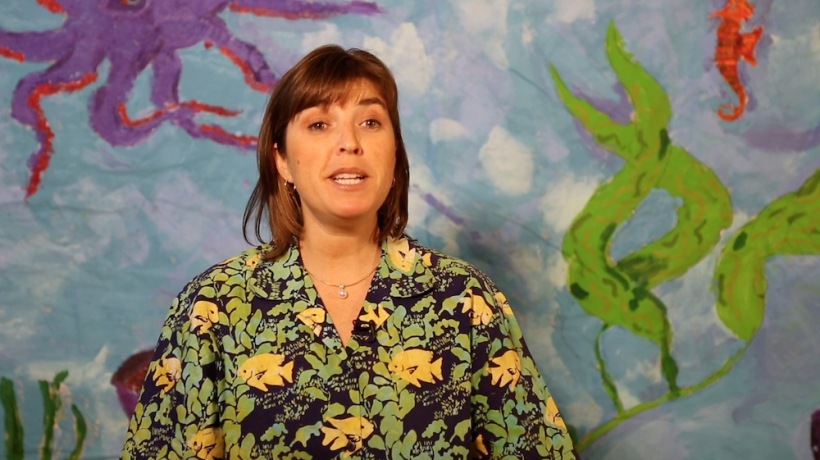
Listen and Read Along story about Nancy Caruso, a marine biologist who helped bring kelp forests back to the California coast.
MY HERO recommends reading, or listening to, this essay by Wendy Jewell about her hero, Rachel Carson. Rachel Carson is the author of Under the Sea-Wind: A Naturalists Picture of Ocean Life and The Sea Around Us. She is credited by many as the mother of the environmental movement. She raised awareness of the danger to the environment, as well as health risks, from the use of chemicals. After reading the essay, take a close look at her portrait by Robert Shetterly.
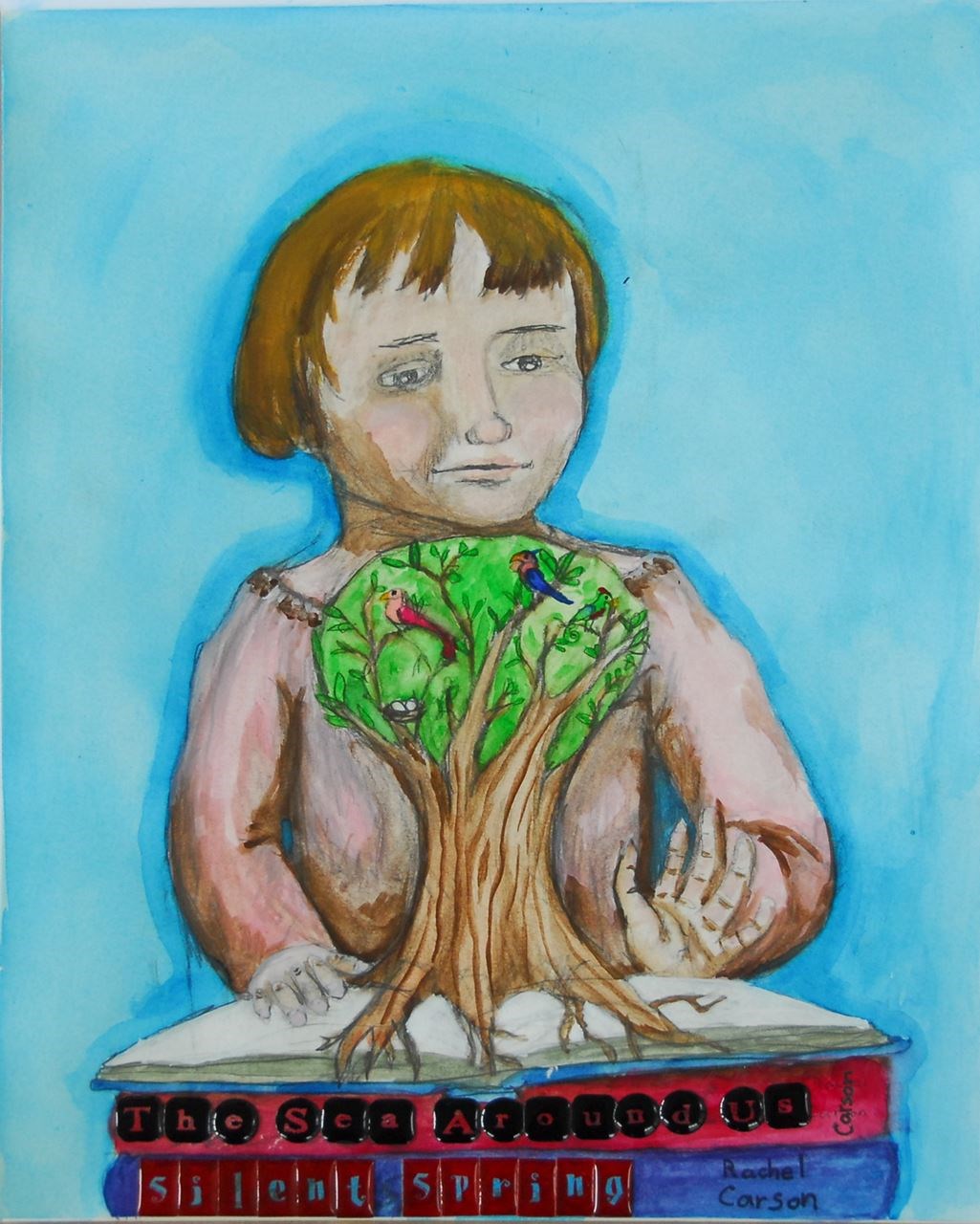
Rachel Carson, author of Silent Spring, was the mother of the environmental movement. Story available in text with audio allowing students to listen as they read along.
Students read the essay Help Mary Save Coral and watch the three videos Help Mary Save Coral, Defending the Deep, Restoring the Coral Reefs in Florida, and Our Ocean. Our Future. The Kashia Pomo and Marine Protection Areas about heroes protecting the world's marine life. Then consider the discussion questions.
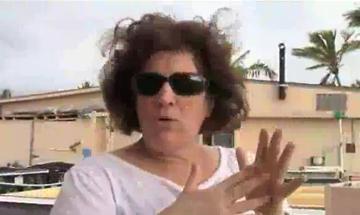
One woman's effort to save the world's underrated natural resource, coral. (running time 10:58 min)
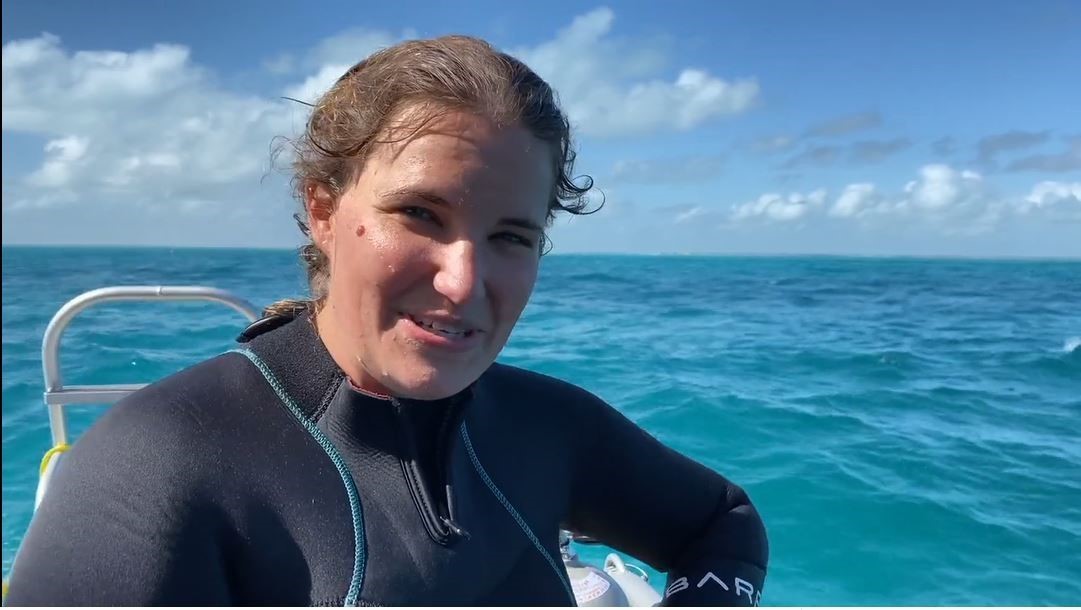
his film introduces Sea Heroes who are working to restore the depleted coral reefs off the Florida Keys. (runtime 10:00 min)
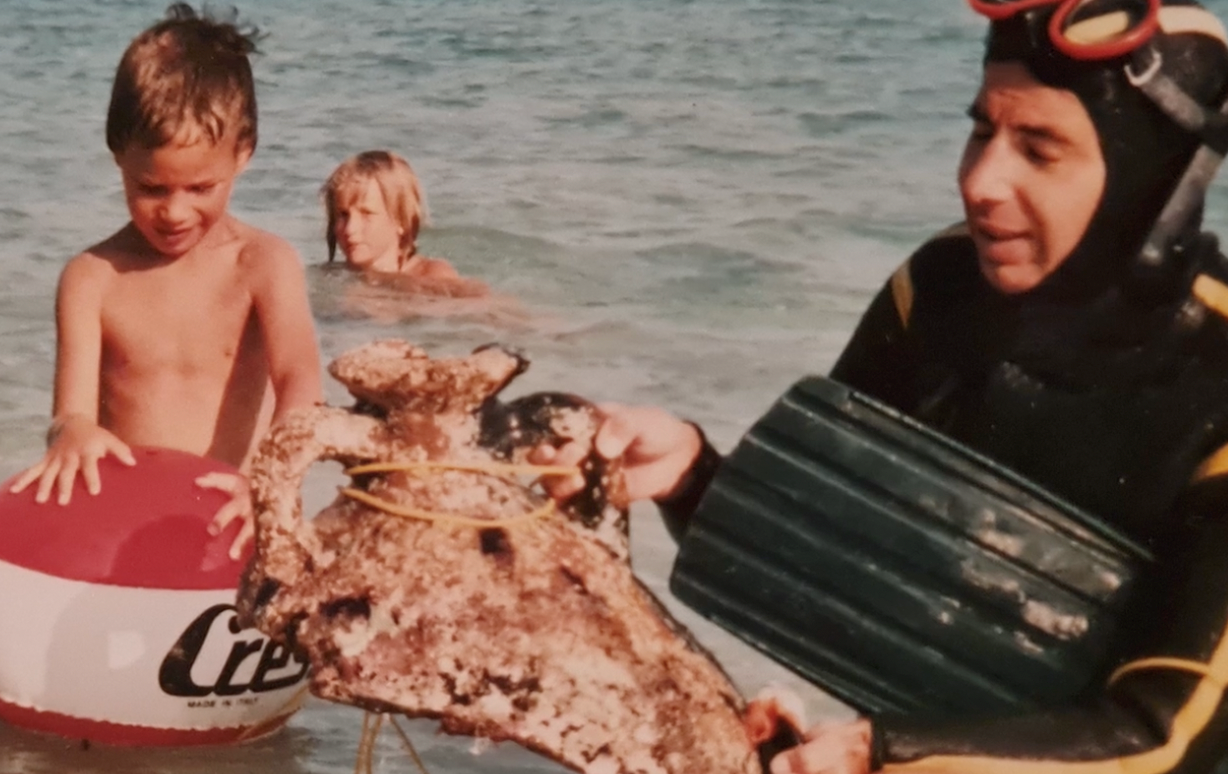
Oceana calls on the UK government to ban bottom trawling along the UK coast and marine protected areas. (runtime 4 min)
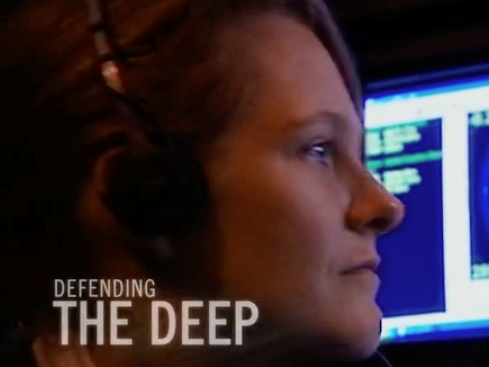
Claire Nouvian led a campaign against the destructive fishing practice of deep-sea bottom trawling. (running time 5:39 min)
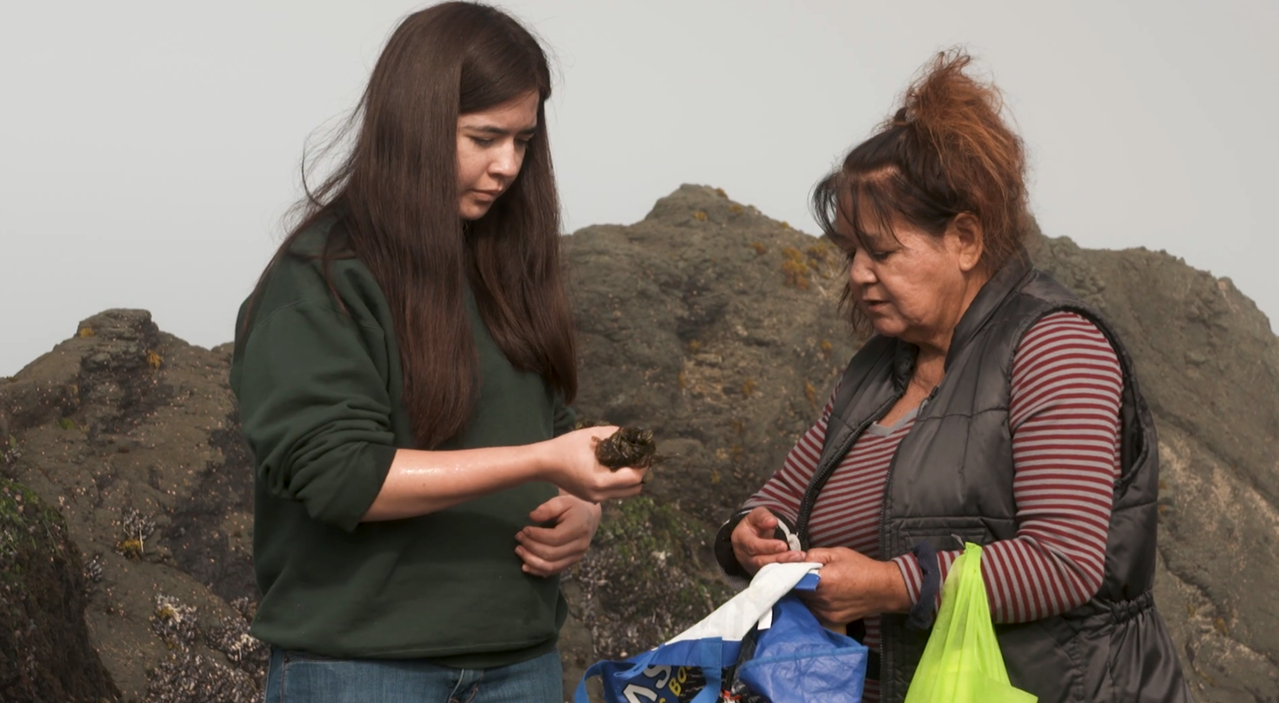
The Kashia Band of Pomo Indians are an important partner in the recovery of our coastal resources. (runtime 5:50 minutes)
1. What impact has the work done by heroes like Claire Nouvian, Rachel Carson and Mary Hagedorn had on marine life and the world's oceans?
2. What is your opinion about deep-sea bottom trawling fishing? Research alternatives.
3. How can the knowledge indigenous people like the Kashia Band of Pomo Indians help protect the world's coastal resources?
4. What bodies of water are in your community? Do you know any heroes working to preserve these? Share their story with MY HERO.
Learn about the impact climate change and global warming has had on the ocean.
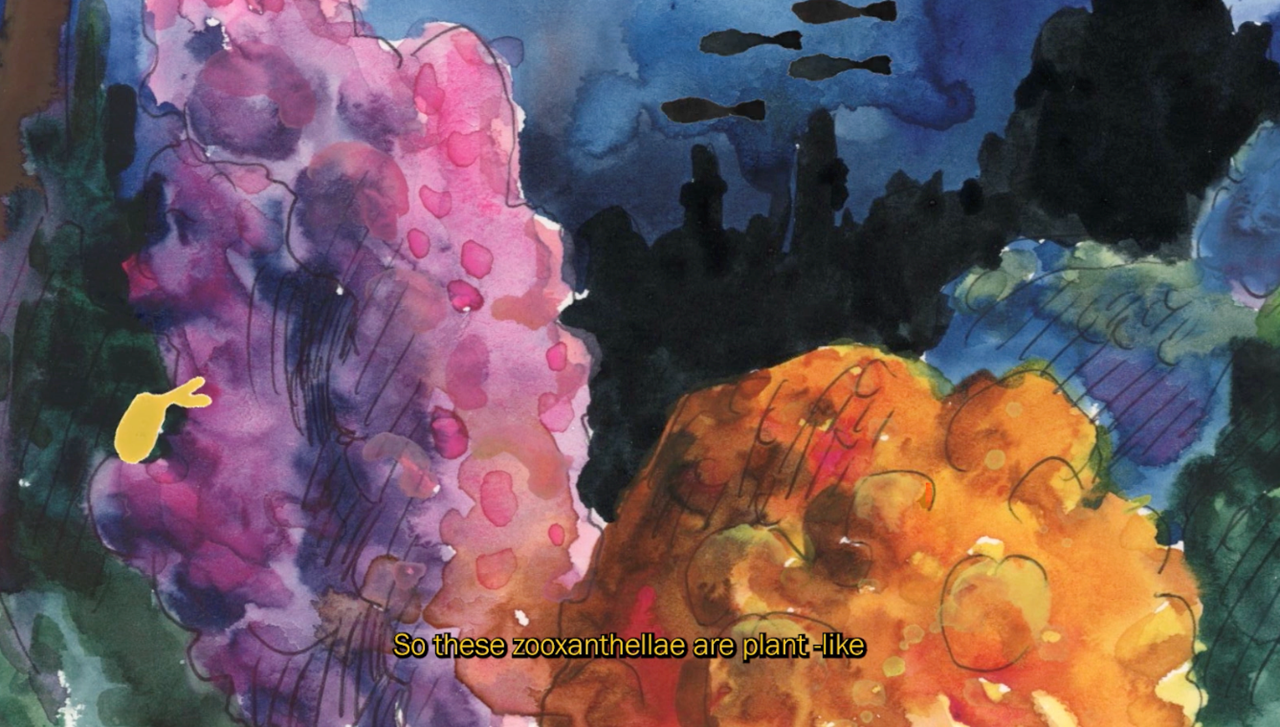
What are some of the changes scientists have noticed happening due to climate change and ocean warming?
Additional film resources
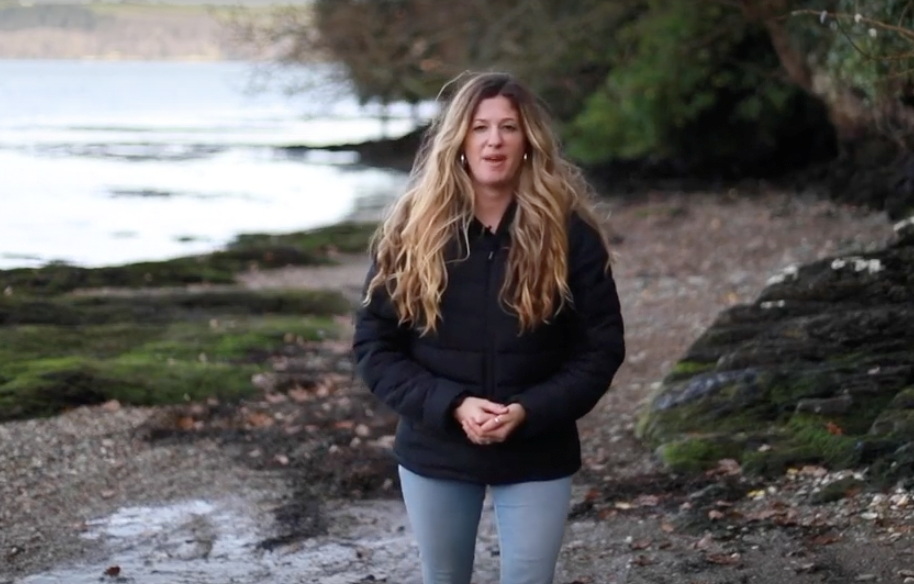
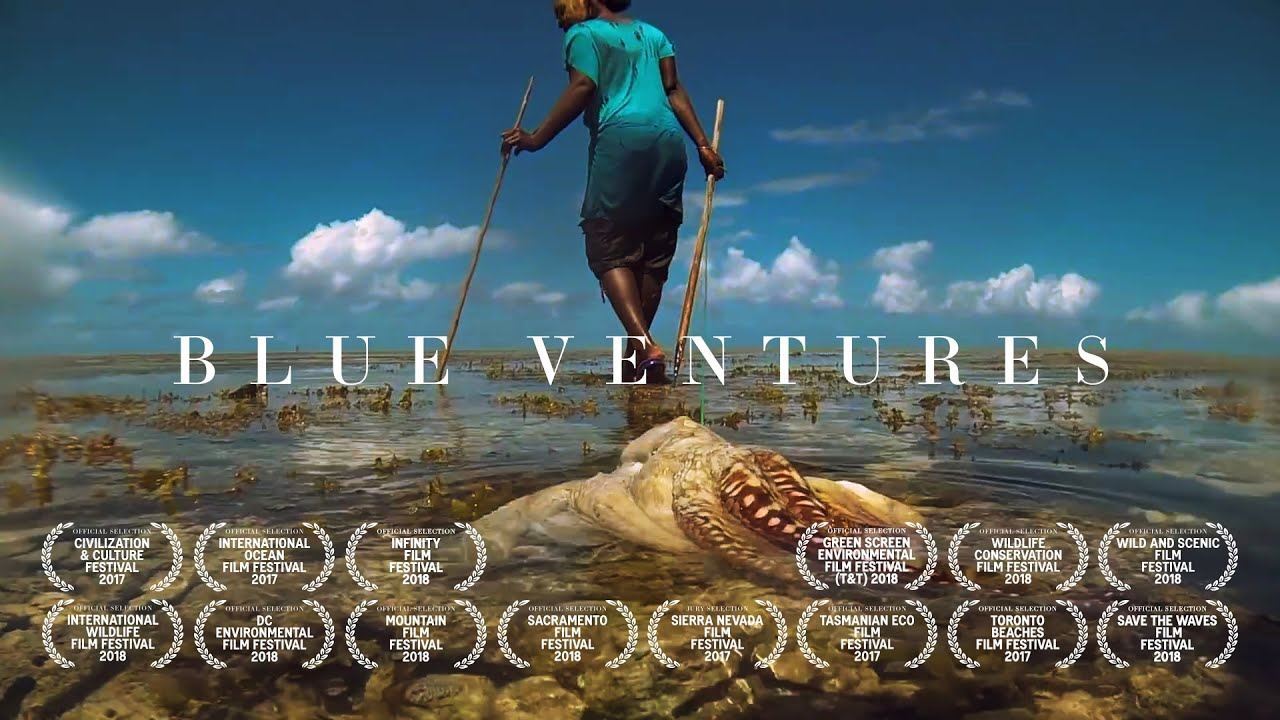
Blue Ventures
In 2004, marine biologist Alasdair Harris encouraged a coastal Madagascar community to close off a small section of their octopus-fishing area to see if this would boost productivity.
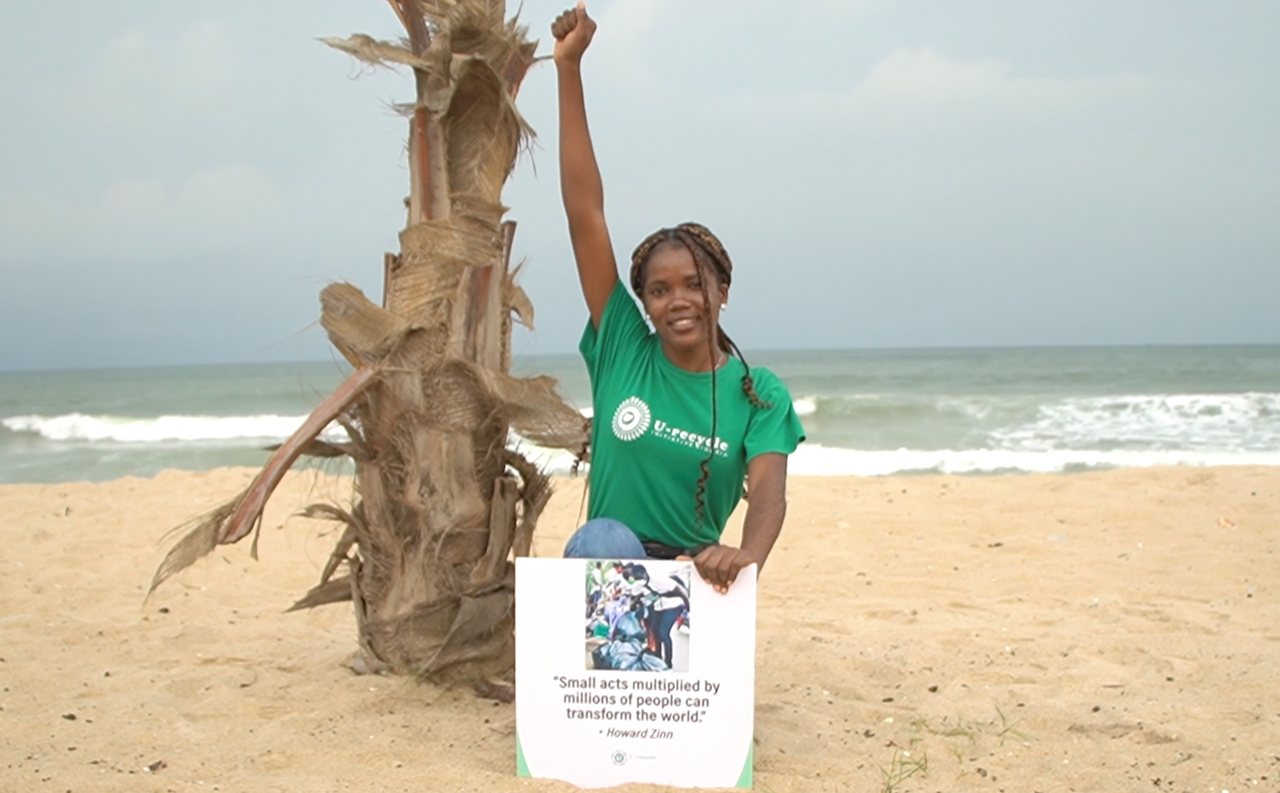
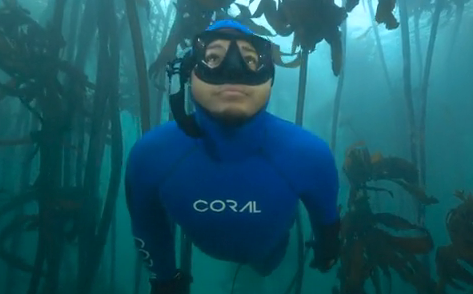
Watch this short film exploring the deep sea, depths of 650 meters and more, to learn about life in the Ocean
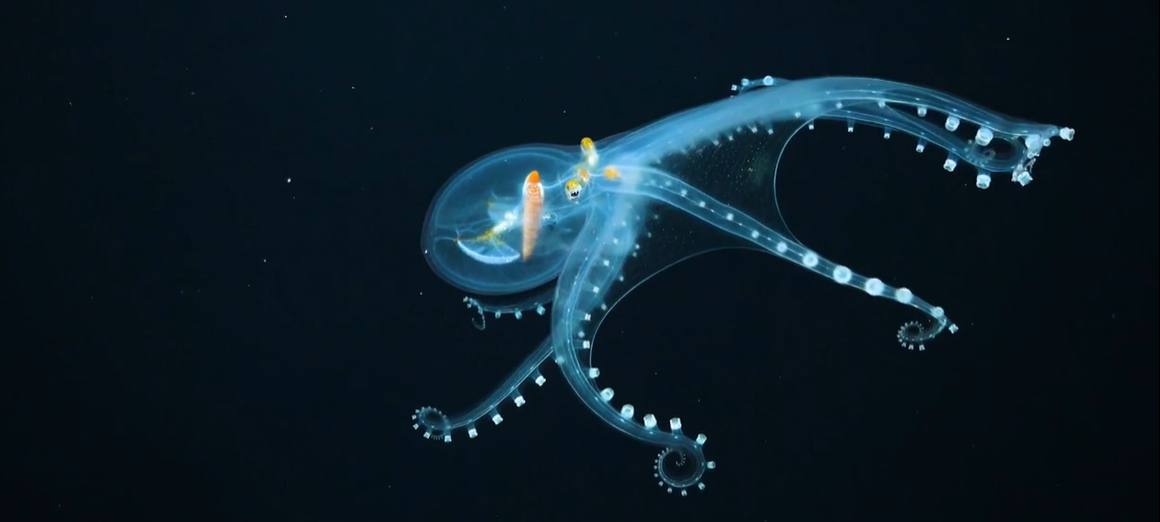
Like scientists, artists conceptualize and put together ideas in new ways. Artists and scientists both have the ability to offer a deeper understanding of our Ocean. (9 min. runtime)
Stories available in English, Spanish and French
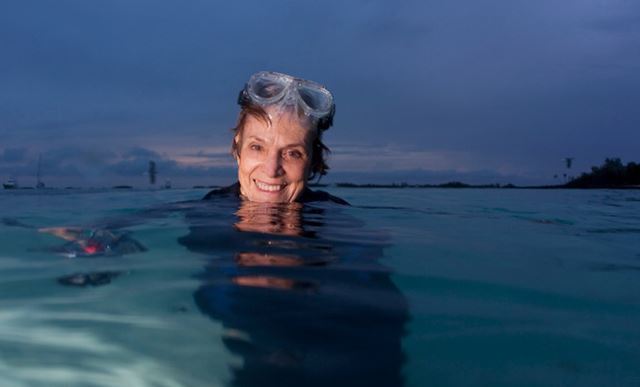
"The key is to see ourselves as a part of the natural systems that support us." [This story is also available in Spanish and French.]
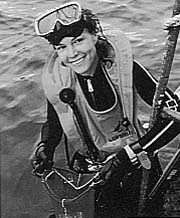
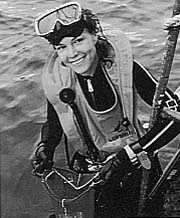

Jacques Cousteau pioneered marine conservation, underwater sea explorer, born 1910. [This story is also available in Spanish and French.]
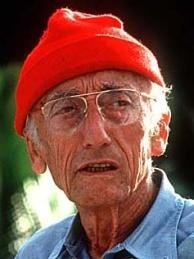
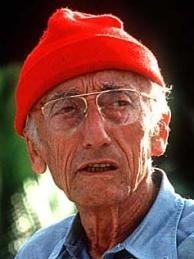
APPROPRIATE FOR ALL AGES
Closely analyze the following photographs.
What sea life can you identify?
What can you do to help protect sea life and our oceans?
What attributes make these images powerful?
Learning Outcomes
Students will learn about interconnected marine life in the world's oceans and the impact of humans on this ecosystem. They will develop research and critical thinking skills as they explore threats to the ocean's ecosystem and ways they can help.
Teachers: Visit MY HERO for additional Curated Resources for World Oceans Day.
Additional Resources and Curriculum
Ecological Interactions and Biodiversity of Kelp Forest Curriculum
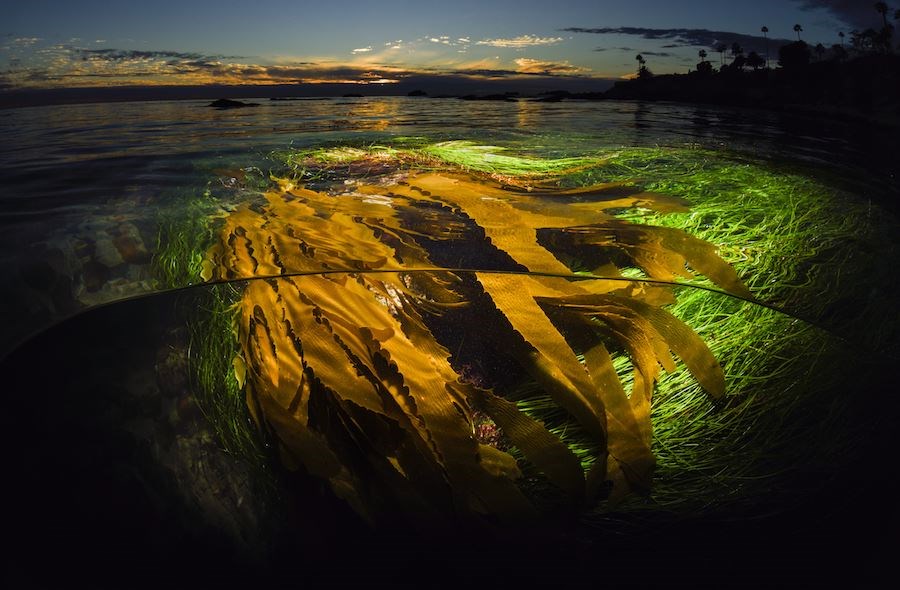
Know Your Seafood- Sustainable Fish Choices Poster
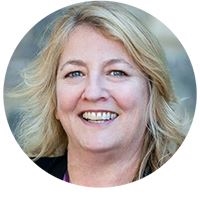 |
The World Oceans Day lesson plan was created by MY HERO Education Outreach Director Laura Nietzer. |
MY HERO Calendars for use in the Classroom
Students can share their Hero Essays, Films and Art through our Create Program
Organizer created on 5/7/2019 2:07:17 PM by Laura Nietzer
Last edited 8/12/2025 9:33:02 AM by Abigail Richardson